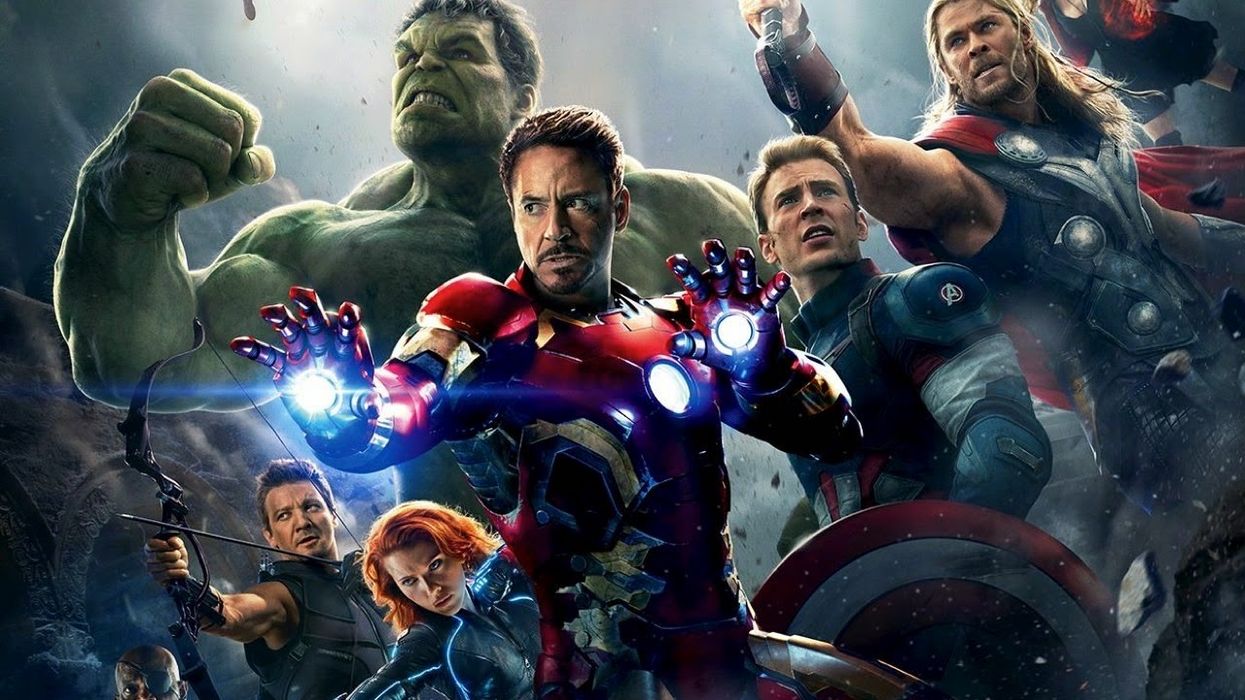How to Write a Marvel Film From Start to Finish
Learn how these Marvel writers were able to surmount the odds and write the biggest blockbuster of all time.

What brings you back to writing? What are the things that keep you at the keyboard even when things are going more wrong than right? For me, it's looking for inspiration from the pros. I like to analyze the way they write treatments, outlines, and beat sheets, ultimately getting me to put my butt in a chair and continue to write.
What better professional writers to follow than the ones who underwent maybe the biggest challenge in modern movie history: writing and guiding the Marvel process.
Check out the video from Vanity Fair in which Marvel writers Stephen McFeely and Christopher Markus detail their process. And then we'll talk after the jump!
How to Write a Marvel Film
First things first, writing a blockbuster movie is supposed to be fun. What I really dug about the process here is how they just sit around for the first few weeks and brainstorm cool scenes. From those scenes, they dig into character.
When you work on character development and character arcs over multiple movies things tend to change.
Captain America used to be about sacrifice. Iron Man used to be about becoming his best self.
Those worked in the first movies, but each person needed somewhere to go.
Once this decision was made, they knew that the Infinity Saga arc was about two things:
- Captain America: It can't all be about sacrifice. Sometimes it's about getting the best life.
- Iron Man: It can't all be about getting your best life. Sometimes it's about sacrifice.
With these mantras in mind, they set off to outline.

Infinity War vs. Endgame
Despite the rumors, the guys always knew the finale of the Infinity Saga would be two movies. Still, they wanted those movies to feel connected. That meant building a long beat sheet for the entire story and working in where to break up the films.
From the beginning, the snap was the natural place to split the films.
They knew they had the stones and Thanos, but the rest was up to them. They could use any hero and kill anyone off. That was a challenge and a terrifying prospect. But instead of shrinking, they focused in on the fun. If anything is possible, what's the most fun and entertaining things that could happen?
Since Marvel movie assignments come with a release date, they knew they were working against the clock. They started writing the movies in late 2015 and kept the process going through shooting.
In terms of process, they collaborated with the producers and directors to break the story, then wrote a treatment, then chased the screenplay.

What hits the whiteboard?
Markus and McFeely are big fans of writing scenes on notecards and then assembling them. When you are whiteboarding two movies at ones, you want to figure out the beginning, middle, and end first. Then build in the other moments around this plotting.
Once they had an entire room filled with cards, and the snap in the middle, they knew which beats being in which movie.
Then it was time to write.
Writing the script
The single most comforting thing that came from this interview was the idea that during many days nothing actually happens. The guys talk back and forth, obsessively noodle, and then have days where they churn out pages.
This flux of writing time and page creation felt close to something we all experience.
It's important to know that regardless of the size of the project, you take your own creative process to the table.
Whatever works, works.
So get writing and if you get the shot at writing a Marvel movie...tell me and make me proud!

What's next? Learn more about writing the Avengers!
How do you tackle the most significant hurdle a screenwriter has ever faced? You need some screenwriting Avengers.
Click for another interview with Markus and McFeely!











